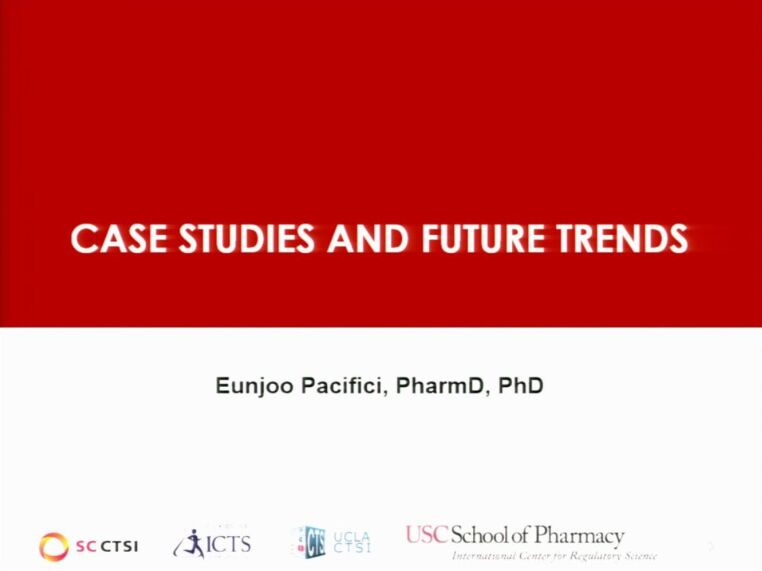- Presentation Title: Case Studies and Future Trends
- Presented by Eunjoo Pacifici, PharmD, PhD
- 46 New Drugs in 2017 approved by CDER
- Promising Trend (Growing number of drugs being approved)
- Scientific advances are pushing this trend forward ex. completion of the Human Genome Technology
- Not all drugs follow the same path
- Regulatory incentives
- Fast track, Breakthrough therapy, accelerated approval (conditional approval process with surrogate endpoint and after being introduced intro market, needs to show benefits), priority review (10 months to six months)
- Drugs can qualify for one or more expedited pathway
- Study sizes vary (Orphan vs. non-orphan)
- Example: Bevyxxa – Action Package Checklist can be found readily online. Information including what tracks requested can be found in that checklist.
- One large randomized trial.
- Many studies were involved in the overall development
- IND in 2005, End of P2 in 2011, Approved in June 2017 (12 years)
- Example: Brineura – Treats genetic condition, biologic application
- Action Package Checklist shows it took advantage or priority designation, orphan drug designation, and breakthrough therapy designation
- Much smaller program in comparison to Bevyxxa (23 patients)
- Single-arm, non-randomized, open-label study
- Control arm: historical control based on registry data
- Stabilized at the 300 dose
- IND in July 2014 and approved in April 2017
Regulatory Science Symposium: Regulatory Aspects of Clinical Trial Design Session 5: Case Studies and Future Trends (2018)
In this session, we will discuss trends in drug development in 2017 and look at case studies that reflect these trends.
Chair and Associate Professor of Regulatory and Quality Sciences Associate Director, D. K. Kim International Center for Regulatory Science
Course Syllabus/Topics
Acknowledgement
Accompanying text created by Annie Ly | Undergraduate Research Associate and Provost's First Generation Research Fellow | lyannie@usc.edu

